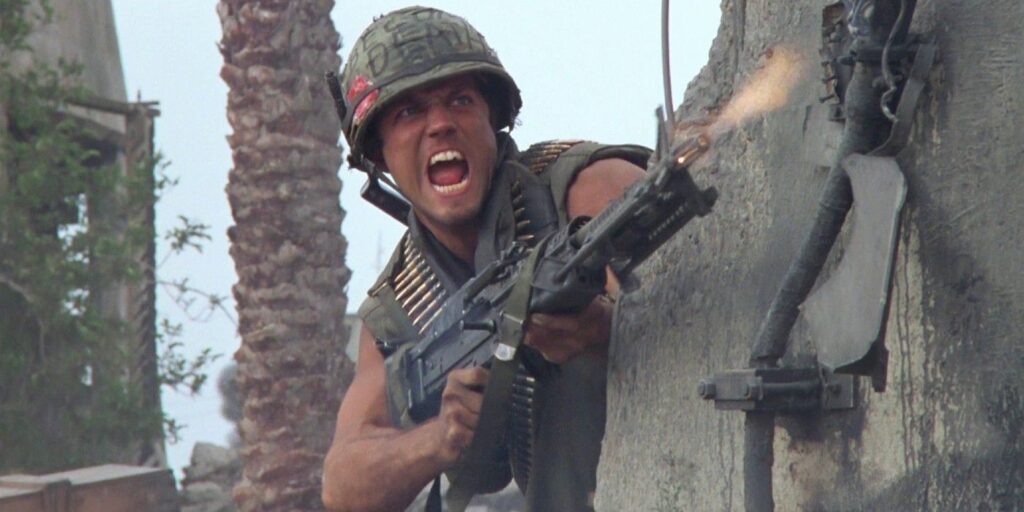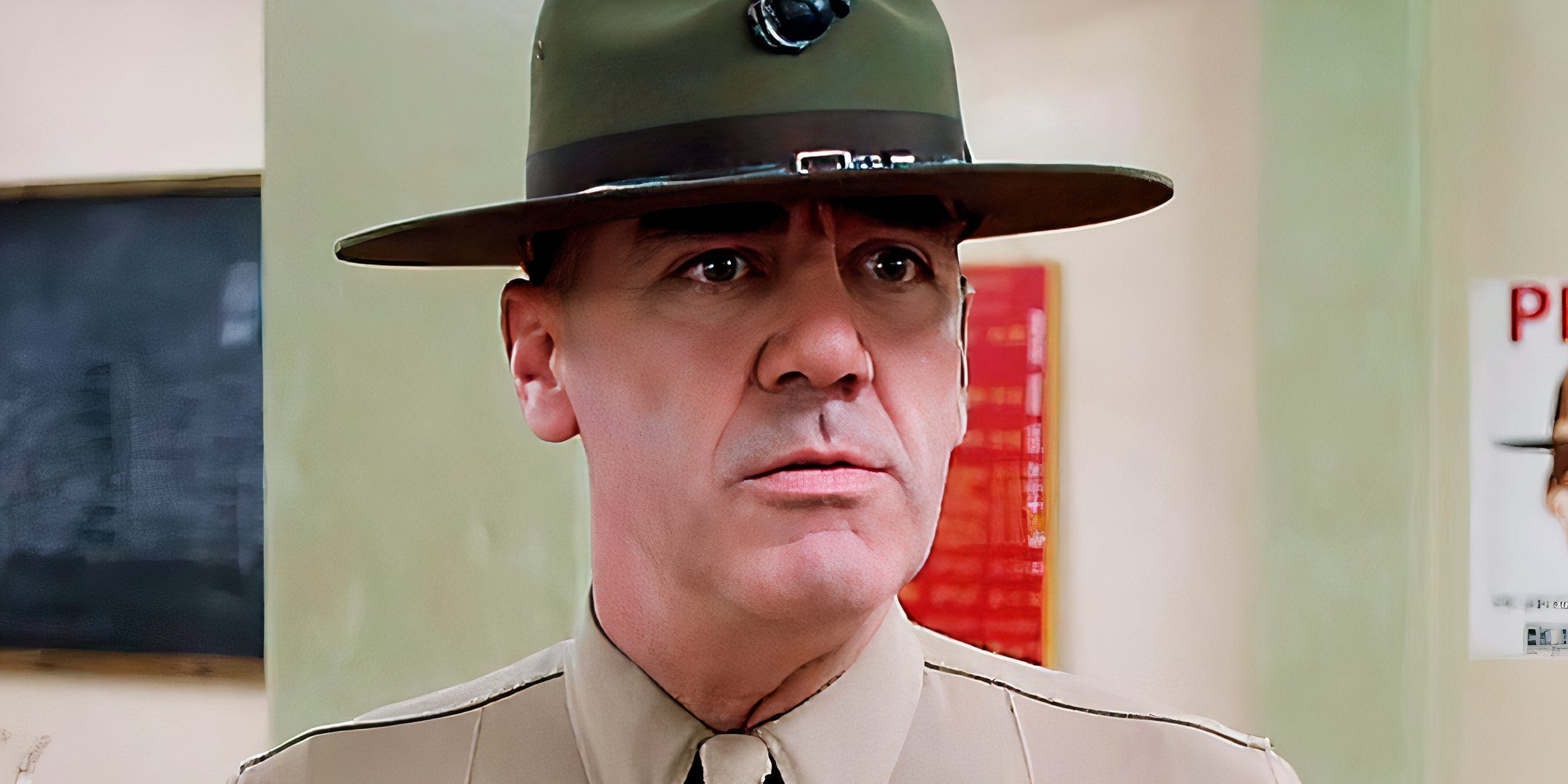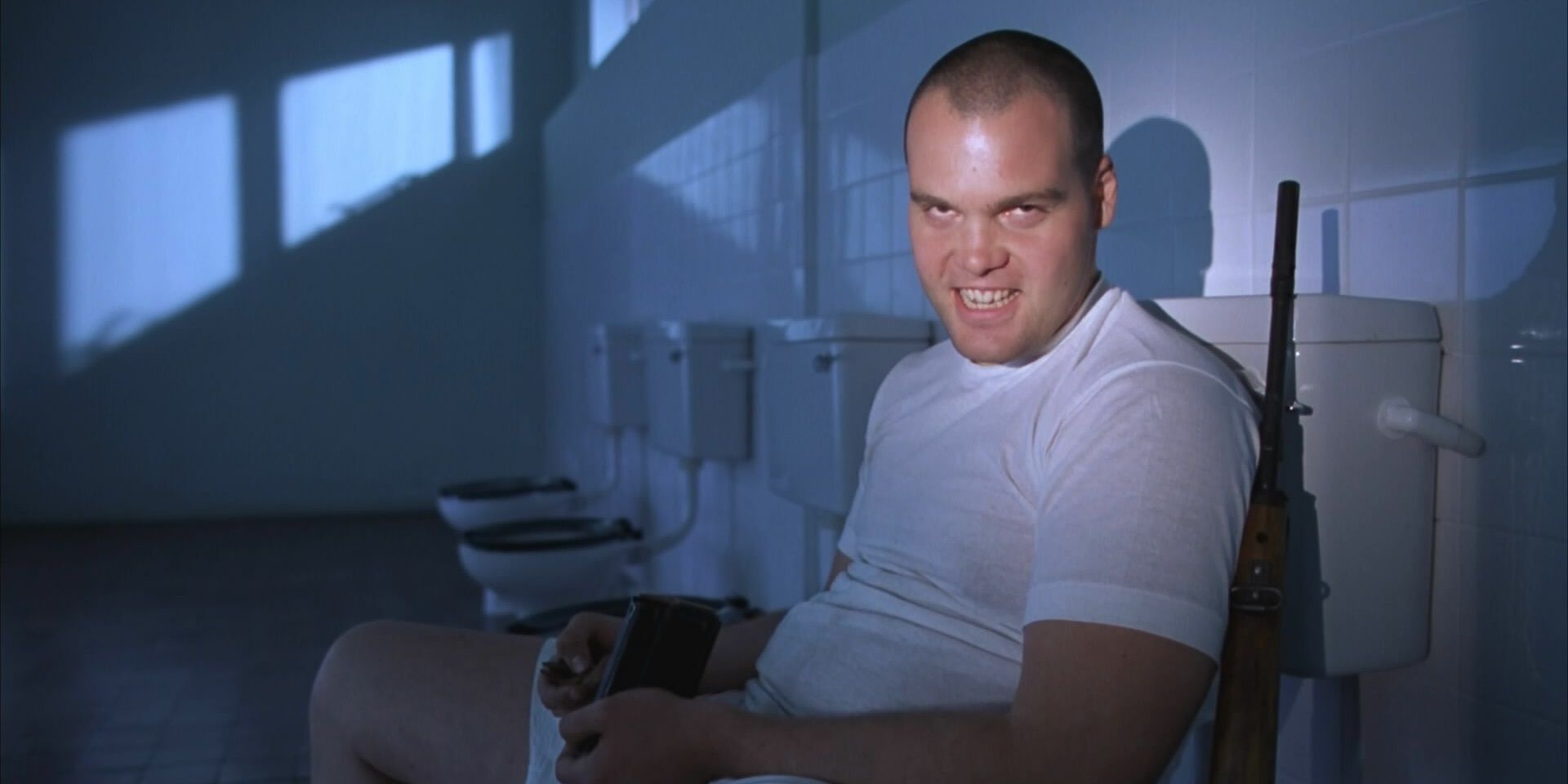Full Metal Jacket is considered one of the best war movies of all time, but famed movie critic Roger Ebert was not among its fans. Ebert is one of the most notable movie critics of all time, with his long-standing position as film critic for the Chicago Sun-Times and his show alongside fellow critics Gene Siskel, At the Movies.
Over the years, Ebert highlighted underrated movies with his iconic “thumbs up.” Of course, Ebert has also disliked movies that aged better than he may have anticipated. However, one of his most surprising reviews came with him delivering his “thumbs down” to an iconic war movie celebrated by many people.
While Full Metal Jacket was praised as another masterpiece by director Stanley Kubrick when it was released in 1987, one of the few critics who spoke against it was Roger Ebert. The Vietnam War movie is split into two separate parts, with one following soldiers in basic training and the other showing them in the actual war.
Ebert acknowledged that a new movie from Kubrick, one of the greatest directors of all time, built a lot of anticipation that the film did not live up to. He also pointed out that the movie suffers in comparison to other Vietnam movies that came before it, like Platoon and Apocalypse Now, offering nothing new on the subject (via RogerEbert.com):
But “Full Metal Jacket” is uncertain where to go, and the movie’s climax, which Kubrick obviously intends to be a mighty moral revelation, seems phoned in from earlier war pictures. After what has already been said about “Vietnam” in the movies, “Full Metal Jacket” is too little and too late.
Ebert acknowledged that there were some excellent moments in the movie, pointing specifically to the performance of R. Lee Emery as the Drill Sergeant and his relationship with Pyle (Vincent D’Onofrio). However, while those moments populate the first half of the movie, Ebert felt the second half was an empty war movie cliché.
Roger Ebert’s views on Full Metal Jacket were certainly the minority opinion of the movie, as it scored 90% on Rotten Tomatoes. Among those critics who praised the film was Ebert’s co-host on At the Movies, Gene Siskel. While it wasn’t uncommon for these two to disagree on films, Full Metal Jacket was a memorable split in their opinions.
Reviewing the project on At the Movies, Siskel deemed it “very original and very close to being a masterpiece.” Along with echoing Ebert’s praise of the early basic training sequences, Siskel also felt Full Metal Jacket separated itself from other Vietnam War movies by depicting the joy of fighting mixed with the fear of death.
Full Metal Jacket filmed its war scenes in various locations in the United Kingdom, something Ebert felt gave the movie an inauthenticity, feeling more like a World War II movie than a Vietnam film. However, Siskel defended it as showing city fighting, something not often depicted in these types of movies.
In the end, Siskel’s praise of Full Metal Jacket was more in line with the general critical reception. The film continues to be regarded as a classic of the war movie genre, and has aged well enough to still be counted among the most authentic Vietnam movies.



